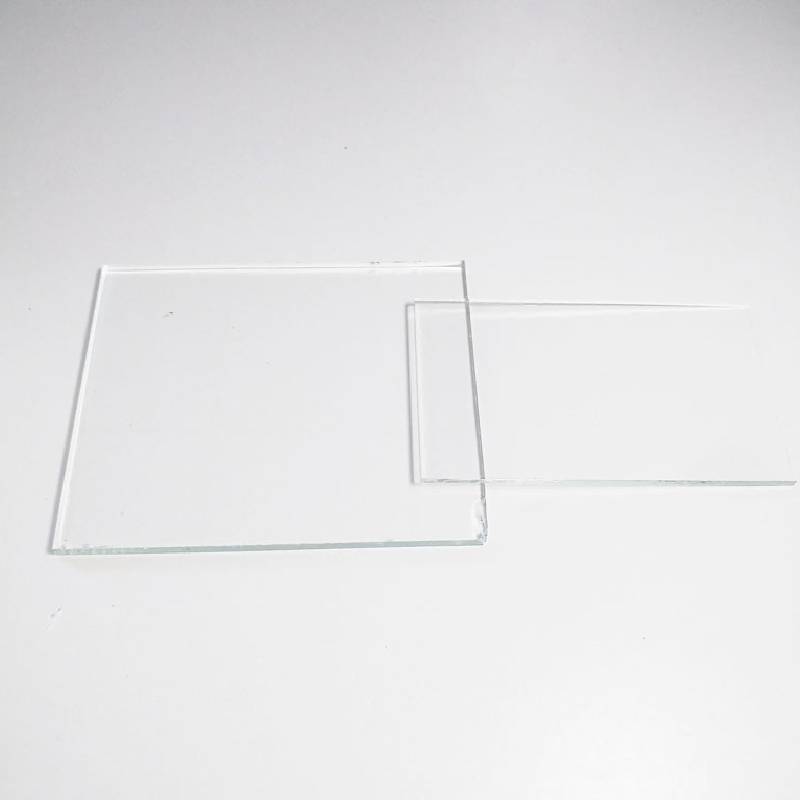Exploring Float Glass Sheets An Essential Component of Modern Architecture and Design
Float glass, commonly referred to as float glass sheets, represents a significant advancement in glass manufacturing that has transformed architectural design and construction. The process of creating float glass dates back to the mid-20th century and has since become the standard for producing high-quality flat glass used in a variety of applications. This article delves into the characteristics, production process, applications, and benefits of float glass sheets, highlighting their significance in contemporary design.
What is Float Glass?
Float glass is a type of flat glass created using a unique method where molten glass is floated on top of molten tin. This process results in a smooth, uniform thickness with exceptional clarity and transparency. The term float signifies the way the glass floats on the tin, allowing it to spread evenly and create blemish-free surfaces. The result is a highly polished sheet of glass that is ideal for both aesthetic and functional uses.
The Production Process
The production of float glass involves several steps
1. Raw Materials The primary components of float glass are silica sand, soda ash, and limestone, along with other additives to enhance properties such as durability and resistance to ultraviolet (UV) radiation.
2. Melting The raw materials are mixed and melted in a furnace at high temperatures, typically exceeding 1,700 degrees Celsius. This process results in a molten glass mass.
3. Floating The molten glass is carefully poured onto a bath of molten tin, where it spreads out evenly. The density difference between the glass and tin allows the glass to float, forming a smooth surface.
4. Annealing After floating, the glass moves through an annealing lehr, where it is gradually cooled. This process relieves internal stresses, ensuring the glass is strong and stable.
5. Cutting and Packaging The final product is then cut into sheets of various sizes and packaged for distribution.
Applications of Float Glass Sheets
Float glass sheets are widely used across various industries and applications
float glass sheets
1. Construction and Architecture Float glass is primarily used in residential and commercial buildings. Its clarity and aesthetic appeal make it ideal for windows, facades, and glass doors.
2. Automotive Industry The automotive sector extensively employs float glass for windshields and windows due to its toughness and optical clarity.
3. Interior Design In interior applications, float glass is used in furniture, mirrors, and decorative elements. Its versatility allows designers to experiment with textures and finishes, enhancing the overall aesthetics of spaces.
4. Electronics Float glass is also utilized in the manufacturing of screens for televisions and smartphones, providing a durable yet visually appealing surface.
Benefits of Float Glass Sheets
Float glass sheets come with numerous advantages that make them a preferred choice in various applications
1. Optical Clarity The smooth surface and uniform thickness of float glass provide exceptional clarity and light transmission, crucial for applications requiring visibility.
2. Durability Float glass is highly resistant to scratches and impact, making it a durable choice for high-traffic areas.
3. Customization Float glass can be easily cut, shaped, and treated with various coatings to enhance properties like energy efficiency and UV resistance.
4. Sustainability The glass is recyclable and can be reused without compromising quality, making it an environmentally friendly option.
5. Safety Features Float glass can be treated or laminated to enhance safety, making it suitable for areas prone to breaking, such as schools and public buildings.
Conclusion
Float glass sheets are an integral part of modern design and construction, offering unmatched qualities that cater to diverse needs. From enhancing architectural aesthetics to maintaining safety and delivering durability, float glass continues to be a transformative material in our built environment. As technology advances, we can expect further innovations in the production and application of float glass, underscoring its importance in both current and future designs.
 Afrikaans
Afrikaans  Albanian
Albanian  Amharic
Amharic  Arabic
Arabic  Armenian
Armenian  Azerbaijani
Azerbaijani  Basque
Basque  Belarusian
Belarusian  Bengali
Bengali  Bosnian
Bosnian  Bulgarian
Bulgarian  Catalan
Catalan  Cebuano
Cebuano  Corsican
Corsican  Croatian
Croatian  Czech
Czech  Danish
Danish  Dutch
Dutch  English
English  Esperanto
Esperanto  Estonian
Estonian  Finnish
Finnish  French
French  Frisian
Frisian  Galician
Galician  Georgian
Georgian  German
German  Greek
Greek  Gujarati
Gujarati  Haitian Creole
Haitian Creole  hausa
hausa  hawaiian
hawaiian  Hebrew
Hebrew  Hindi
Hindi  Miao
Miao  Hungarian
Hungarian  Icelandic
Icelandic  igbo
igbo  Indonesian
Indonesian  irish
irish  Italian
Italian  Japanese
Japanese  Javanese
Javanese  Kannada
Kannada  kazakh
kazakh  Khmer
Khmer  Rwandese
Rwandese  Korean
Korean  Kurdish
Kurdish  Kyrgyz
Kyrgyz  Lao
Lao  Latin
Latin  Latvian
Latvian  Lithuanian
Lithuanian  Luxembourgish
Luxembourgish  Macedonian
Macedonian  Malgashi
Malgashi  Malay
Malay  Malayalam
Malayalam  Maltese
Maltese  Maori
Maori  Marathi
Marathi  Mongolian
Mongolian  Myanmar
Myanmar  Nepali
Nepali  Norwegian
Norwegian  Norwegian
Norwegian  Occitan
Occitan  Pashto
Pashto  Persian
Persian  Polish
Polish  Portuguese
Portuguese  Punjabi
Punjabi  Romanian
Romanian  Russian
Russian  Samoan
Samoan  Scottish Gaelic
Scottish Gaelic  Serbian
Serbian  Sesotho
Sesotho  Shona
Shona  Sindhi
Sindhi  Sinhala
Sinhala  Slovak
Slovak  Slovenian
Slovenian  Somali
Somali  Spanish
Spanish  Sundanese
Sundanese  Swahili
Swahili  Swedish
Swedish  Tagalog
Tagalog  Tajik
Tajik  Tamil
Tamil  Tatar
Tatar  Telugu
Telugu  Thai
Thai  Turkish
Turkish  Turkmen
Turkmen  Ukrainian
Ukrainian  Urdu
Urdu  Uighur
Uighur  Uzbek
Uzbek  Vietnamese
Vietnamese  Welsh
Welsh  Bantu
Bantu  Yiddish
Yiddish  Yoruba
Yoruba  Zulu
Zulu 

